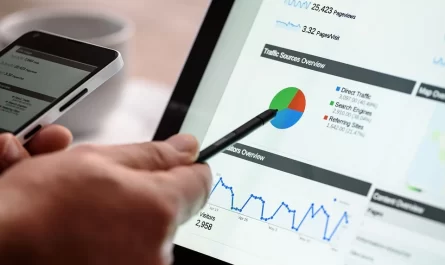The roof is one of the most vital parts of a commercial building. It protects the structure from the elements, preserves the interior environment, and enhances the building’s aesthetic appeal. However, choosing the right type of roof for commercial properties is a complex process that requires careful consideration of several factors. In this blog post, we’ll explore the different types of commercial roofing Snohomish, WA, the materials used to construct them, and the maintenance practices to extend their lifespan and performance.
Flat Roofing Systems: Flat roofing systems are commonly used for commercial buildings because of their reasonable cost and durability. These roofs are typically made of rubber, PVC, TPO, or EPDM and are designed to be weather-resistant against UV rays, rain, and snow. One of the most significant advantages of flat roofs is their easy installation and maintenance. They also provide additional space for the installation of HVAC equipment or solar panels.
Metal Roofing Systems: Metal roofing systems are known for their long lifespan and energy efficiency. They are made of various materials, such as aluminum, steel, or copper, and can last for up to 50 years with proper maintenance. Metal roofs come in different styles, including standing seam, corrugated, and ribbed, and can be customized to fit the specific needs of commercial buildings.
Built-Up Roofing Systems: Built-up roofing systems, also known as BUR, are composed of multiple layers of asphalt and felt to create a weather-resistant barrier. These roofs are known for their ability to withstand foot traffic and resist punctures, making them an excellent choice for commercial buildings with high foot traffic. The installation process for BUR is time-consuming, but the result is a durable and long-lasting roof that can last up to 30 years.
Single-Ply Membrane Roofing Systems: Single-ply membrane roofing systems are made of a single layer of synthetic materials, including TPO, PVC, and EPDM. These roofs are lightweight, flexible, and easy to install, making them a popular choice for commercial buildings. They are also resistant to fire, UV rays, and chemicals. Single-ply membrane roofs are available in different colors and patterns, allowing building owners to customize their roof’s appearance.
Roof Maintenance: Proper roof maintenance is essential for extending the lifespan of commercial roofs and preventing costly repairs. Building owners should schedule regular inspections to identify and address potential issues, such as leaks, cracks, or damage to flashing or drainage systems. Regular cleaning is also necessary to remove debris, leaves, or dirt that can clog gutters and drains and cause water accumulation on the roof.
In the world of business, safety and security are always at the forefront of owner’s minds. When it comes to protecting your business from the elements and the outside world, your commercial roofing system is the key. With the right system in place, your business and its assets can be protected from water damage, energy loss, and more. In this blog, we’ll explore the importance of commercial roofing systems, their benefits, and the various types available.
Why is commercial roofing important?
Commercial roofing is important to protect your business and its assets from damage from outside elements. A high-quality roofing system can help reduce the risks of mold, moisture damage, and energy loss. Additionally, a reliable roof can help keep your customers and employees safe, ensuring no one is accidentally injured due to roofing damage. Through regular maintenance and inspections, you can continue to protect your business’s integrity.
What are the benefits of commercial roofing?
The benefits of commercial roofing go beyond protection and safety. One of the biggest benefits is energy savings. With an energy-efficient roofing system, you can reduce the amount of heat absorption and energy loss, making it easier to control internal climate and lower your overall energy costs. Additionally, a high-quality roofing system can increase the overall value of your building, giving you a higher return on investment when it comes to selling or renting your property.
What types of commercial roofing systems are available?
There are several different types of commercial roofing systems available, each with their own benefits and drawbacks. One of the most popular types is the built-up roofing system, which uses layers of asphalt and gravel to create a durable, fire-resistant surface. Another option is the modified bitumen roofing system, which uses a single-ply sheet that is mechanically fastened or adhered to the roof’s surface. Other commercial roofing systems include EPDM (Ethylene Propylene Diene Monomer), metal roofs, and TPO (Thermoplastic Olefin).
How do you maintain your commercial roofing system?
Proper maintenance and inspection are critical when it comes to protecting your commercial roofing system. Without regular attention, issues with your roof can go unnoticed until it is too late and your building has already suffered significant damage. Routine inspections by a professional roofing contractor can help identify any potential issues, from small leaks to more significant wear and tear. Additionally, cleaning your roof and gutters regularly can help prevent the buildup of debris and other hazards that can damage your roofing system.
Conclusion:
In conclusion, choosing the right type of commercial roof is crucial for the sustainability and performance of the building. Flat, metal, built-up, and single-ply membrane roofing systems are some of the most common types of commercial roofing available. The materials and installation methods used to construct commercial roofs are factors to consider when making a decision. Additionally, regular maintenance practices, such as inspections and cleaning, can help to prolong the lifespan of a commercial roof and prevent costly repairs. By following this guide, building owners can make informed decisions about their commercial roofing needs and ensure their continued success.
Commercial roofing is a key component of a safe and secure business. From protecting your assets to improving energy efficiency, a high-quality roofing system can help make your building more functional and valuable. Regular maintenance and attention can help you avoid costly damage and ensure your business stays safe and secure for years to come. Whether you’re in the market for a new roofing system or need to repair an existing one, make sure you choose a professional team with experience treating commercial roofs so you can feel confident the job will be done right.
United Seattle
1010 SE Everett Mall Way, Ste 100, Everett, WA 98208

